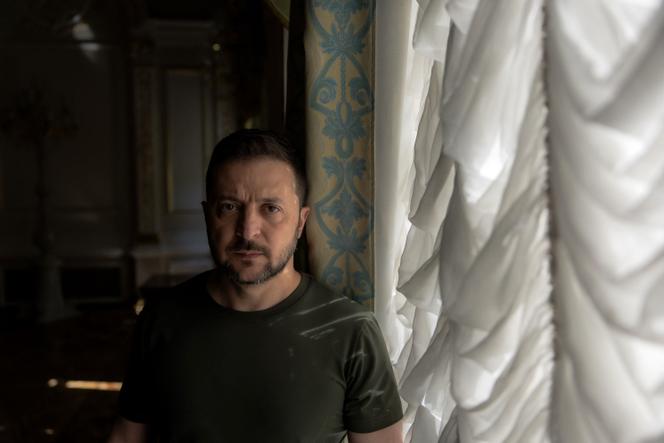


Five years have passed since that sunny day on May 20, 2019, when Ukrainian President Volodymyr Zelensky was sworn in in the Verkhovna Rada, the parliament in Kyiv. "Each of us is president," had declared the political novice, then 41. He was freshly elected with 73.2% of the ballots cast by voters who dreamt of change, enticed by his many promises to negotiate an end to the war in the Donbas, end corruption, improve pensions, raise wages...
Five years later, the former comedian turned war leader has nothing in common with what he used to embody. His face has hardened, and his beard has grown. Zelensky now only appears in combat fatigues, an outfit that has remained unchanged since the Russian invasion began on February 24, 2022.
While his term of office would have expired this week in peacetime, given present conditions, the president is expected to remain in office for as long as the war lasts, as the constitution precludes elections from being held under martial law.
The prospect of keeping the same president for the entire duration of the war, debated in the country since the winter of 2023, is generally accepted by a population worried about an election that could be "divisive for the country," said Oleksi Haran, a professor of political science and researcher at the Democratic Initiatives Foundation.
According to various polling organizations, most Ukrainians consider it impossible to hold an election because of the state of war, while several hundred thousand are serving in the army and millions more are refugees elsewhere in the world. "We're unable to conduct real competitive elections while the entire country is being bombed. It's as simple as that," explained the expert.
Still, while the president enjoyed an unprecedented level of confidence in the country at around 90% in late March 2022, pollsters have noticed a decline in his popularity as the war has gone on.
This trend began in the fall of 2023, following the failure of the Ukrainian counter-offensive in the summer of the same year on territories occupied by the Russian army. "Criticism of President Zelensky resumed, and his popularity rating, along with that of other state institutions, began to decline gradually," noted Volodymyr Fessenko, a political scientist and director of the Center for Political Studies "Penta" think tank.
A sociological survey published in early April by Razumkov, a Kyiv think tank, showed that 58.6% of Ukrainians trust their president. "There's less emotion and a more rational attitude towards him as head of state," Fessenko explained. "People see his weaknesses and shortcomings but recognize that he is performing his functions as president with dignity and responsibility."
You have 52.13% of this article left to read. The rest is for subscribers only.
